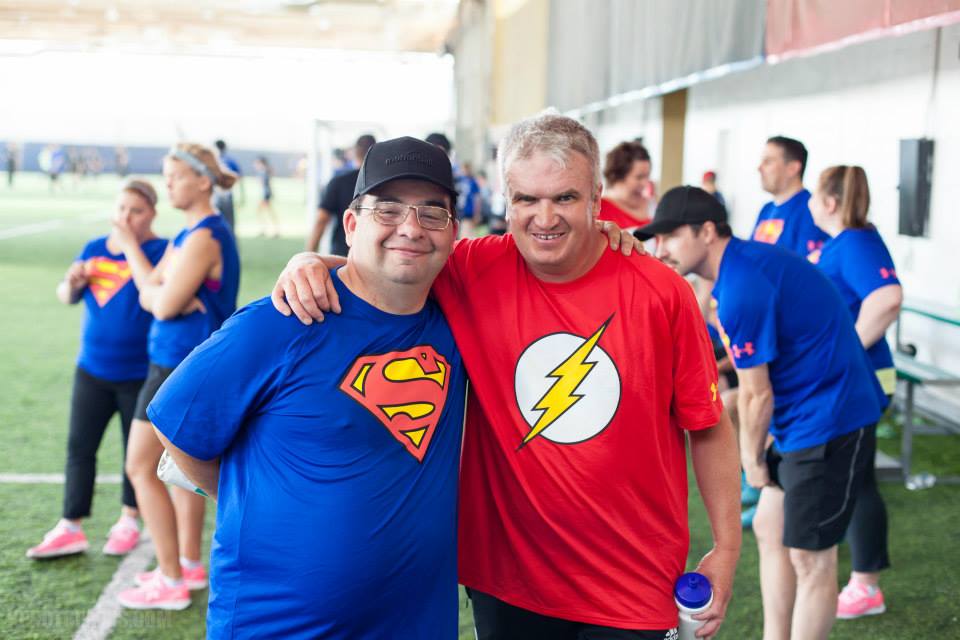Kevin Timberlake was just called the R-word last month.

The 44-year-old Special Olympics athlete says he was taunted by a teenager on a bus in Toronto.
“It’s very hurtful,” he tells Global News. “It hurts me and other athletes… we like to have respect from people who are using the word.”
Timberlake has been a part of Motionball’s #NoGoodWay campaign since 2012, an initiative to get Canadians to stop using the R-word in everyday conversation. “Retarded” and “retard” are both used negatively, as well as placeholders for other words like “crazy,” campaign organizers say.
READ MORE: University of Saskatchewan group wants to end use of the R-word in Saskatoon
Motionball co-founder Paul Etherington tells Global News the campaign’s aim is to not eliminate the R-word, but stop the casual and negative use of it.
He adds the word itself, which is used in languages like French, still has a stigma attached to it that is used as a form of bullying against people with intellectual disabilities.
A similar campaign, R-word: Spread the Word to End the Word, is also catching traction in the U.S., Today.com reports.

Get weekly health news
How it is used
New York-based mom Heather McEntarfer, whose son was born with Down syndrome, recently told the site that two years ago, she was filling out paperwork that asked if her son was “mentally retarded.”
READ MORE: Edmonton students launch #NoGoodWay campaign to eliminate use of R-word
Etherington adds the problem with the word is that it is also used to replace words like “crazy,” or as McEntarfer notes, “dumb” or “stupid.”
He adds when he recently went to a high school to ask young people how they use or hear the R-word, a lot of the feedback he got was to describe “crazy” things. Students were using phrases like, “That party got retarded.”
In his personal experience, he says he has heard clients and friends bring up the R-word in social gatherings, and although it wasn’t malicious, it has become a placeholder.
Other times, he adds, it is just pure bullying, taunting or hateful.
“There are better words. It’s not for you and your friends, but all the Canadians who have to deal with it [being] offensive,” he says.
When it comes up
For Timberlake, who plays and coaches floor hockey and soccer, says when he hears people using the word to describe him, a word he has heard his whole life, he says it is frustrating.
Sometimes, he doesn’t say anything because he’s afraid of the outcome.
Etherington adds, when people hear the words from friends or co-workers in a social setting, it’s important to step in and educate them.
“Instead of embarrassing them in front of a big group, that’s never our intent, take them to the side.”
He says taking this route is often awkward, but it works. People are willing to be open as to why the word is offensive and may decide not to use it going forward.
READ MORE: Police officer recorded swearing and dropping R-word to make fun of Sask. man
For parents, child psychologist Jillian Roberts of Family Sparks, says they should be teaching their children the R-word is prejudicial and negative.
“It used to be a word that we used clinically but we no longer use it. Using the word is hurtful and disrespectful for people who have a disability,” she says. Explaining to children why it shouldn’t be used in a casual way may make them more aware if they see others doing it. And at the end of the day, our language also has to change.
“Parents and older teens also need to be taught not to use this word because they are role models for children.”








Comments
Want to discuss? Please read our Commenting Policy first.